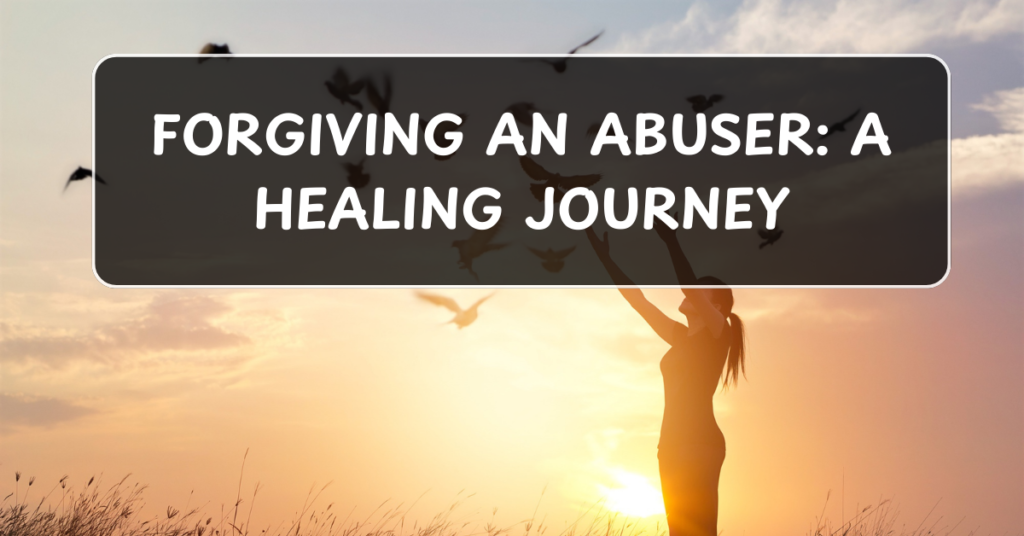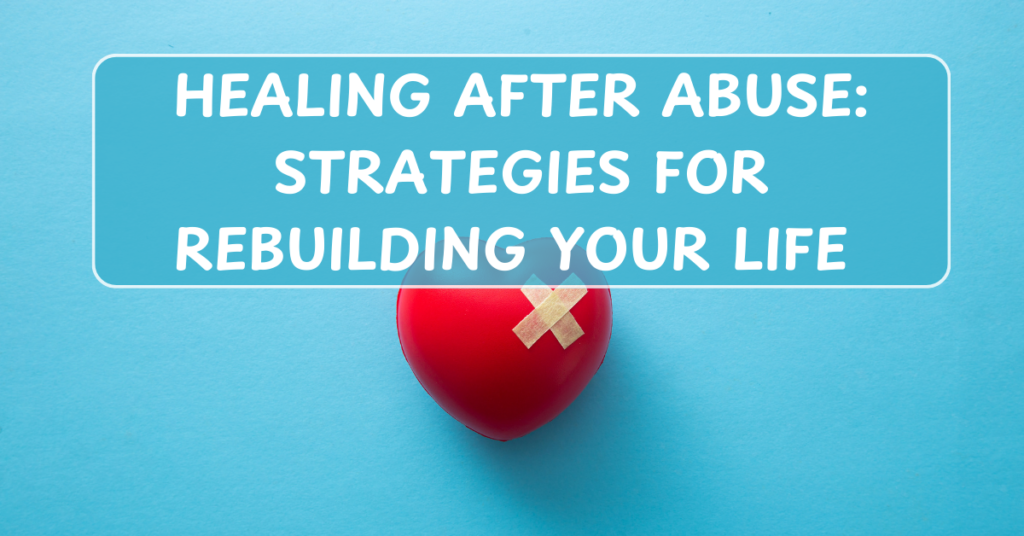
Forgiving an abuser is one of the most complex and emotionally challenging things someone can do. It doesn’t mean condoning or forgetting the abuse; rather, it’s about reclaiming your personal power and finding peace for yourself. The path to forgiveness can be long, and it requires deep introspection, self-compassion, and a commitment to healing. It’s important to understand that forgiveness is a personal choice, and it’s okay if you’re not ready for it.
Here’s a closer look at what forgiving an abuser can mean, why it’s important, and how you can approach it on your own terms.
1. Understanding What Forgiveness Is (And Isn’t)
Forgiveness is often misunderstood as excusing the behavior of the abuser or reconciling with them. However, true forgiveness isn’t about the abuser—it’s about your own emotional and mental well-being.
- Forgiveness is: Letting go of anger and resentment, finding peace, and allowing yourself to move forward with your life.
- Forgiveness isn’t: Forgetting what happened, excusing the behavior, or reconciling with the abuser. It’s okay to not want a relationship with the person who harmed you.
2. Recognizing the Power of Forgiveness for Yourself
One of the most important reasons to forgive an abuser is that it frees you from the emotional burden of holding on to anger, pain, and resentment. These negative emotions can keep you stuck in the past and hinder your ability to heal and move forward. By forgiving, you release yourself from the grip of your abuser’s actions, and you take back control over your own emotional state.
- Benefit: Letting go of anger can reduce stress and help you heal emotionally and physically.
3. Forgiving Doesn’t Mean Forgetting
Forgiving an abuser is not about erasing the trauma from your memory. It’s about accepting the past without letting it dictate your future. It’s important to remember that forgiveness doesn’t require you to forget or ignore the hurt caused by the abuser. Instead, it’s a way to acknowledge the pain while choosing to release the hold it has on you.
- Tip: You can forgive while still setting boundaries to protect yourself from further harm.
4. Taking Responsibility for Your Own Healing
Forgiveness doesn’t excuse the behavior of the abuser, but it is a way for you to take ownership of your healing journey. By forgiving, you give yourself the gift of peace, and you allow yourself the space to heal emotionally and mentally. Forgiveness can help break the cycle of victimhood, enabling you to reclaim your sense of self and restore your power.
- Focus on: Self-care, therapy, and surrounding yourself with positive, supportive people to help in your healing process.
5. Recognizing That Forgiveness is a Process
Forgiveness is rarely instantaneous. It’s an ongoing process that requires time, self-reflection, and patience. Don’t rush yourself or feel pressured to forgive on anyone else’s timeline. Healing takes time, and forgiveness can come in stages. It may take months, years, or longer for you to truly forgive.
- Tip: Allow yourself to grieve the pain and trauma before expecting forgiveness to come. It’s okay to take your time.
6. The Role of Therapy in the Forgiveness Process
Forgiveness can be much easier to navigate with the help of a therapist, especially for abuse survivors. A therapist can provide support, tools, and coping mechanisms to help you understand the emotional complexities of forgiveness. They can also help you navigate any barriers that may be preventing you from forgiving, such as guilt, shame, or fear of further harm.
- Benefit: Therapy offers a safe space to process emotions and understand the impact of the abuse.
7. Understanding the Abuser’s Actions (But Not Excusing Them)
Sometimes, understanding why the abuser acted the way they did can be part of the forgiveness process. This doesn’t mean excusing their actions, but it can provide context that may make it easier to release anger. Often, abusers themselves have experienced trauma or emotional struggles that led them to act out. However, this doesn’t justify or lessen the harm they caused.
- Reflection: Try to understand the cycle of abuse, but remember, the responsibility for their actions lies solely with them.
8. The Importance of Boundaries After Forgiving
Forgiveness does not require you to open the door to continued abuse or disrespect. Setting strong boundaries is crucial in protecting yourself after choosing to forgive. Whether it’s limiting contact, ending the relationship, or refusing to accept harmful behavior, maintaining healthy boundaries is key to ensuring your safety and emotional well-being.
- Boundary Example: Communicating clearly that you forgive the person but that you will not tolerate abusive behavior in the future.
9. The Potential for Rebuilding Relationships
In some cases, forgiving an abuser can lead to the possibility of rebuilding a relationship. However, this is only feasible if both parties acknowledge the harm and the abuser is willing to make amends. Rebuilding a relationship takes trust, consistent effort, and a commitment to change. If the abuser is not remorseful or committed to change, reconciliation may not be possible or healthy for you.
- Consider: Whether rebuilding the relationship is in your best interest or if moving forward without contact is healthier.
10. Letting Go of the Need for Revenge
Forgiveness is often tied to letting go of the desire for revenge or justice. It’s a way to liberate yourself from the hold that anger has over you. When you forgive, you release the need to “get back” at the abuser or to make them pay for what they’ve done. This release can be a deeply healing step in your recovery.
- Key Point: You deserve peace, not more suffering or revenge.
Conclusion
Forgiving an abuser is not an easy or quick process, but it can be incredibly healing. It’s not about excusing the abuse or forgetting the pain; rather, it’s about taking back control, finding peace, and moving forward with your life. Remember that forgiveness is a personal decision, and you don’t have to rush the process. Be gentle with yourself, and seek support when necessary. By choosing forgiveness, you empower yourself to heal, rebuild, and reclaim your life.

